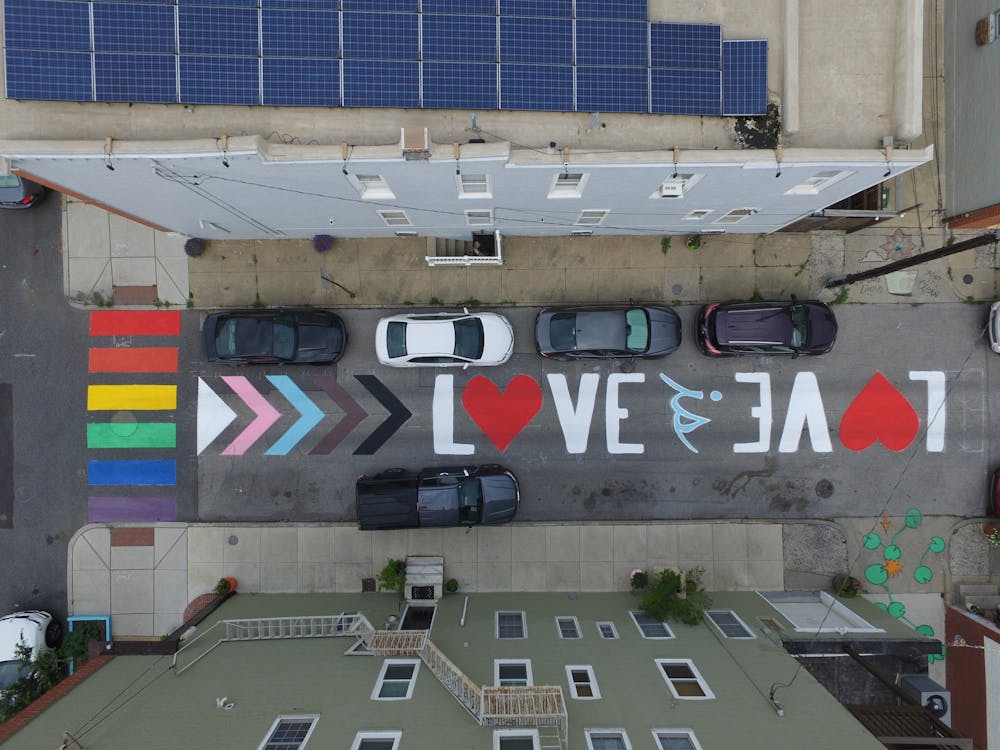National Coming Out Day, observed annually on Oct. 11, is a day of awareness to support LGBTQ individuals. It also marks the anniversary of the second major National March on Washington for Lesbian and Gay Rights.
According to senior James Dweck, National Coming Out Day is a day for reflection and celebration. Dweck, who identifies as transgender and uses he/they pronouns, highlighted that coming out is something one must do for themselves.
“It’s a great day to celebrate being who you are and the journey that you take to get there. Coming out is about coming out to yourself and telling the world who you are, as much as it is about figuring out who you are and how to feel comfortable with that,” he said. “That’s a journey that never ends. You’re constantly changing, and your identity is not a stagnant thing.”
The Office of Lesbian, Gay, Bisexual, Transgender and Queer (LGBTQ) Life held virtual celebrations of the 32nd National Coming Out Day on Oct. 9.
In an email to The News-Letter, Director of LGBTQ Life Demere Woolway expressed appreciation for the festivities, which were able to take place despite the pandemic.
“I’m glad we were able to carry on the tradition of celebrating National Coming Out Day. It was great to get to talk to people about their experiences,” they wrote. “But I really did miss seeing everyone in person.”
Woolway oversaw and hosted two coffee chats via Zoom, where students were able to drop in to discuss their experiences and the meaning of the holiday. LGBTQ Life also hosted an afternoon event in which students watched clips that represented coming out in film and television and proceeded to discuss them afterward.
Senior Michael Vidal believes that the meaning of the day has changed for him over time.
“Even when I wasn’t out, while growing up it was a hopeful day,” he said. “I knew other people were celebrating their identities, and that made me more confident that one day I could celebrate it too. Now that I’ve come out, it feels like a nostalgic day.”
Woolway stressed that coming out is a unique process for each individual. According to them, celebrating the visibility of LGBTQ members who are out benefits the community as a whole.
“There are many obstacles that make it challenging for LGBTQ people to be open about their identities. For members of the LGBTQ community who are able to be out, being visible serves as a possibility model for others who are not able to be out,” they wrote. “Visibility can dispel stereotypes, educate allies and create cultural change.”
In an interview with The News-Letter, sophomore Tomisin Longe offered advice to those who are coming out or thinking of doing so.
“It’s all about having safe spaces or people you trust. You need to be able to come out to the people you feel comfortable with, especially with an understanding that those people care about you as a person,” they said. “It shouldn’t affect how they feel about you.”
Vidal agreed with Longe, emphasizing the personal nature of the decision to come out.
“Don’t feel pressured by the day. Don’t feel like you have to come out or that you’re not embracing the community if you don’t,” he said. “Take your time. It’s your choice when you choose to come out, to whom and how.”
Longe reflected on their experience as an LGBTQ student at Hopkins. They shared that the Office of LGBTQ Life has been especially helpful in providing them resources and finding a community without fear of judgment.
Vidal has found a similar space of inclusivity and comfort at Hopkins.
“I met quite a few people through DSAGA [Diverse Sexuality and Gender Alliance] and through classess,” he said. “It’s a very welcoming space and community, and we all support each other even if we aren’t close friends.”
Dweck has also forged connections with fellow LGBTQ students, especially through the Rocky Horror Picture Show at Hopkins.
“It’s a community and people who I can talk to,” they said. “And they’ve created a safe and comfortable environment for exploring who I am and getting comfortable with myself.”

















